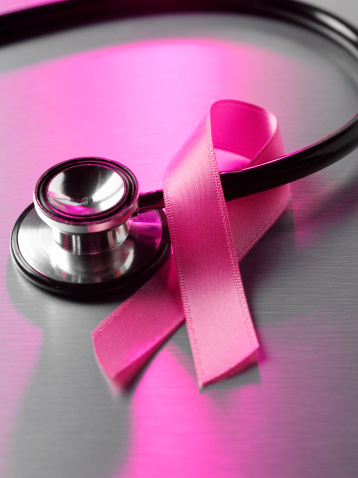
Moderate Amounts of Alcohol Impact Breast Cancer
A study conducted at the Fred Hutchinson Cancer Research Centre in Seattle could lend more credence to the old adage: “everything in moderation.” The study demonstrated that being a moderate alcohol drinker can in fact improve breast cancer survival rate. A research team followed over 22 thousand women with breast cancer over an eleven year period, and discovered that those who drank modest amounts (3 to 6 drinks per week) before developing breast cancer were 15% less likely to die from the disease than non-drinkers. Furthermore, drinking after diagnosis did not appear to impact survival rates either. In fact, breast cancer patients experienced a 25 percent lower risk of death from other causes during the eleven years they were followed.
During the study, the researchers also discovered there was another benefit to moderate alcohol consumption: the risk of cardiovascular disease in women with breast cancer was lower. Cardiovascular disease is a known contributor to the mortality of those who survive breast cancer. It turns out that women who drink 3 to 6 drinks per week before being diagnosed with breast cancer are also 25 percent less likely to develop heart disease.
Cancer Research UK is a huge supporter of cutting down on alcohol consumption to prevent all types of cancer. They support the notion that if you are a heavy drinker, it is not too late to cut down on drinking to reduce your risk. But they add that this doesn’t mean you have to quit completely – drinking in moderation (defined as approximately one drink a day in the UK) is deemed alright.
The Confusing Alcohol-Cancer Connection
While the Seattle study is getting worldwide attention, oncologists caution women not to view this as a license to drink. If your alcohol consumption is beyond the moderate level, you could be increasing your risk of breast cancer. Scientists don’t completely understand how alcohol increases cancer risks, but they do believe it may have to do with the way alcohol breaks down in the body, altering into a substance that could cause genetic mutation.
Other medical experts also suspect that alcohol increases the production of the hormone oestrogen. This hormone is secreted bythe ovaries and placenta, and stimulates changes in female reproductive organs. High levels of oestrogen could cause cancer cells to multiply quickly.
Toasting to the Future
So what is a woman to do with all of this conflicting information? The researchers involved in the Seattle study say that, despite the continuing raging debate when it comes to alcohol and cancer, it would seem that breast cancer survivors can feel comfortable indulging in an occasional alcoholic beverage. Hopefully this line of research will continue to evolve, in order to shed more light on the exact level of alcohol consumption that constitutes the tipping point between cancer protection and increased cancer risk.